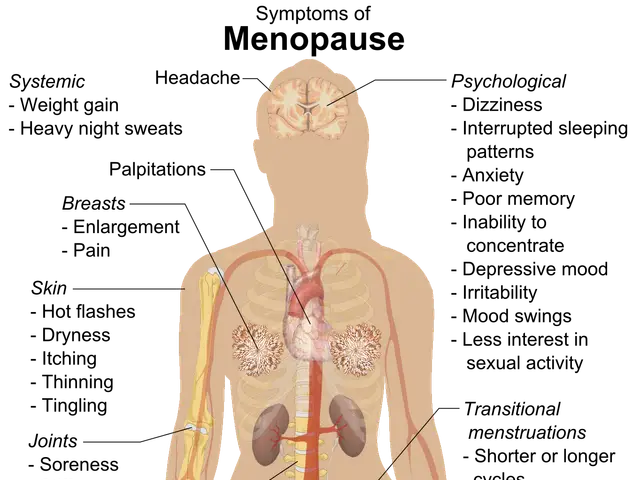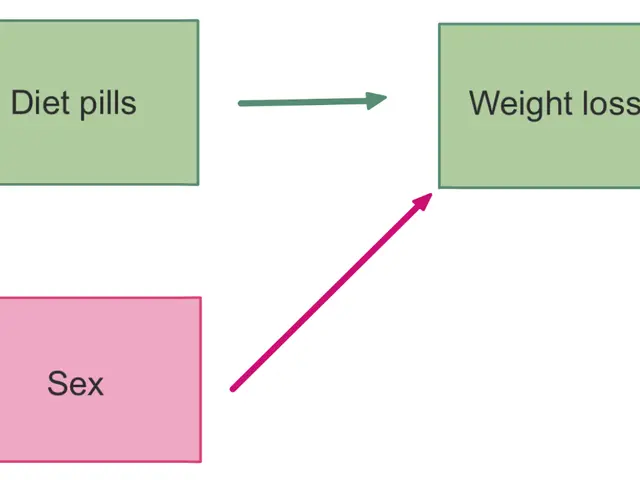Regular bowel maintenance for constipation: Definitions, applications, examples, and additional facts
In the realm of digestive health, constipation is a common issue that affects many individuals. This article aims to provide a clear and concise guide on managing chronic constipation, focusing on lifestyle changes, dietary modifications, and medication options.
Lubricants, such as mineral oil, and bulk-forming laxatives like psyllium, are often used for constipation relief. These substances help to soften stool and promote regular bowel movements. However, it's essential to remember that these should be used as directed to avoid worsening constipation.
For those at a high risk of chronic constipation, such as those on chemotherapy or recovering from surgery, healthcare professionals may recommend a specific bowel regimen. This regimen typically begins with lifestyle and dietary modifications. Increasing daily fiber intake to around 20–35 grams, ensuring adequate hydration, maintaining regular physical activity, and establishing healthy bowel habits are all crucial components.
If these measures prove insufficient, medications may be added to the regimen. Osmotic laxatives, such as polyethylene glycol (PEG) or lactulose, are often the first choice. These draw water into the bowel to soften stool, making it easier to pass. Stimulant laxatives like senna or bisacodyl may also be recommended for severe constipation or when other treatments do not work.
Bowel training, involving trying to have a bowel movement at the same time every day, using a footstool on the toilet, and maintaining a relaxed position, can help make movements more regular. It's essential to consult a doctor before starting any bowel regimen, especially for those with concerning symptoms like bleeding from the rectum, blood in the stool, constant pain in the stomach or lower back, inability to pass gas, vomiting, fever, unexplained weight loss, or any other symptoms that cause concern.
Stool softeners, such as Colace or Dulcoease, and fiber supplements like Citrucel, FiberCon, or Metamucil, can also be part of the bowel regimen. It's important to note that identifying and stopping medications that contribute to constipation, such as opioids and certain antidepressants, is also crucial.
In summary, managing chronic constipation involves a combination of lifestyle changes, dietary modifications, and medication use. This approach is considered best for safely managing chronic constipation long-term. Always consult a healthcare professional before starting any new treatment regimen.
- For individuals on chemotherapy or recovering from surgery, who are at a high risk of chronic constipation, healthcare professionals may recommend a specific bowel regimen that begins with lifestyle and dietary modifications.
- If lifestyle and dietary changes, such as increasing daily fiber intake, maintaining hydration, and regular exercise, are insufficient for managing chronic constipation, medications like osmotic laxatives or stimulant laxatives may be added to the regimen.
- In the realm of health and wellness, it's essential to remember that certain medications, such as opioids and some antidepressants, can contribute to constipation, and identifying and stopping these medications is crucial.
- Bowel training, which involves having a bowel movement at the same time every day, using a footstool, and maintaining a relaxed position, can help make movements more regular, but it's essential to consult a doctor before starting any bowel regimen to address any concerning symptoms.







